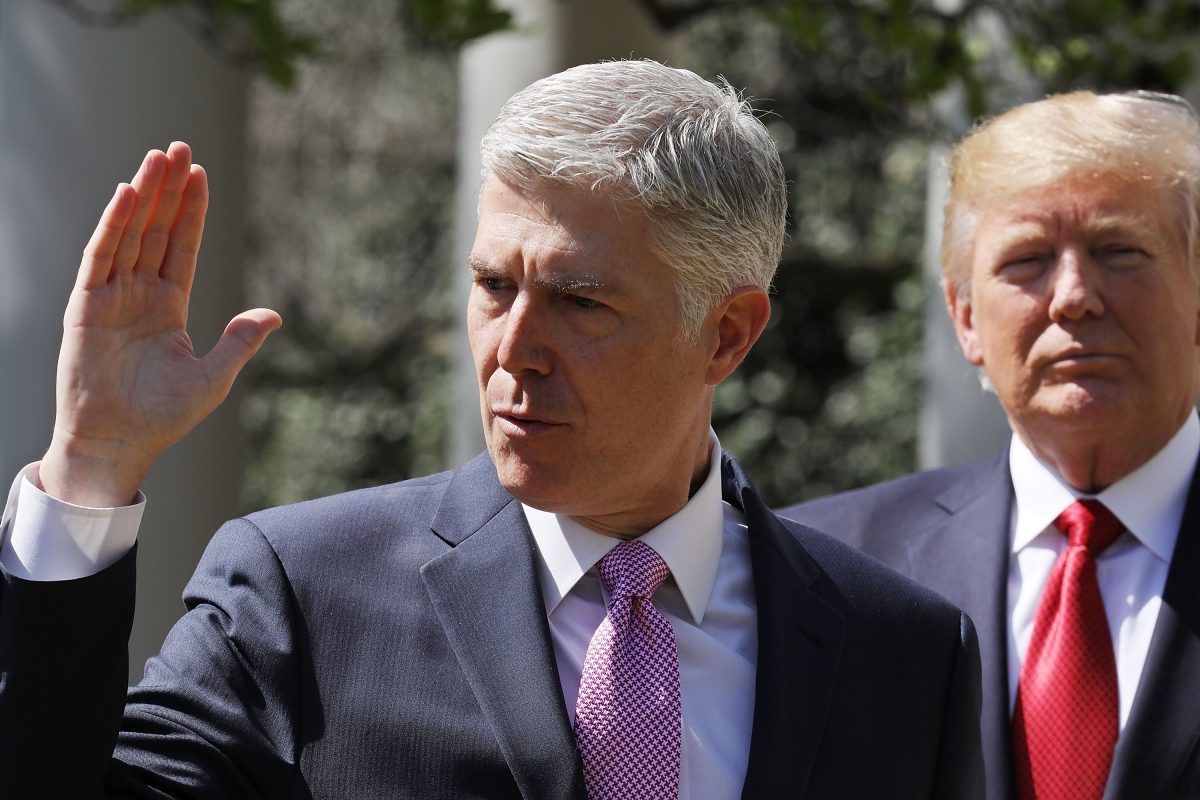
Supreme Court Justice Neil Gorsuch authored an opinion clawing back workers’ rights and then added insult to injury by criticizing the liberal dissent with the words of Barack Obama‘s former professor and law school mentor, Laurence Tribe.
The opinion itself, stylized as Epic Systems Corp. v Lewis, rescinds the rights of employees to contest arbitration clauses in contracts with private employers by way of class action lawsuits. These rights were provided to workers in a 2012 decision issued by the National Labor Relations Board (NLRB).
Prior to that decision, such arbitration clauses–which purport to mandate individualized proceedings–were typically ruled inoperative only in situations involving, “fraud, duress or unconscionability,” according to the Supreme Court. In 2012, the NLRB enlarged the basis on which employees could opt out of such clauses and have their claims heard collectively.
Employers naturally cried foul about the agency enlarging workers’ rights and alleged the 2012 decision was in conflict with the Federal Arbitration Act, which generally requires courts to enforce arbitration agreements as they are written. Various lawsuits were compiled into the case before the court because they touched on the same basic issues and the court ruled in favor of the employers.
The decision came down expressly along ideological and party lines: the four Democratic Party-appointed justices sided with the workers; the five Republican Party-appointed justices sided with the bosses. Swing voters Anthony Kennedy and John Roberts danced with who brung them; and the liberal wing’s occasional tendency to side with business over labor evaporated as it often does in close cases.
Justice Gorsuch was given the decision to write and took the opportunity to needle his detractors by citing to one of their own ranks in order to call them out over alleged Chicken-Littlism. He writes:
The dissent sees things a little bit differently. In its view, today’s decision ushers us back to the Lochner era when this Court regularly overrode legislative policy judgments. The dissent even suggests we have resurrected the long-dead “yellow dog” contract. But like most apocalyptic warnings, this one proves a false alarm.
Gorsuch then drops his citation into the jurisprudential ether: “‘Lochnerizing’ has become so much an epithet that the very use of the label may obscure attempts at understanding.” The justice then adds, “Our decision does nothing to override Congress’s policy judgments.”
Here, of course, Gorsuch is being too-clever-by-a-quarter. While his definition of the Lochner era isn’t exactly wrong, this definition is so broad that it essentially eviscerates the meaning of the term as it’s understood by most legal scholars and second year law students.
The common and correct understanding of the Lochner era requires a bit more than what Gorsuch has provided here. The Supreme Court during this time period did not simply engage in rampant judicial activism by substituting their judgment for that of the States and the Congress–though, again, this is technically true. This is only half the story. Gorsuch’s procedural focus on how such judicial activism occurred works to obscure an understanding of why such judicial activism happened in the first place.
The Lochner era is more properly understood as judicial activism in favor of America’s capitalist class. It was not law-finding supported by Constitutional precepts, but rather law-making undergirded by religious-like belief in laissez faire economic ideology. The judicial activism of the Lochner era, trenchantly in favor of capital at all costs, stood in marked opposition to popular ideas of worker’s rights and efforts aimed at wealth redistribution.
It’s fairly obvious why Gorsuch tried to substitute a process definition for the substantive import of what that process, Lochnerism, ultimately worked in service of.
[image via Chip Somodevilla/Getty Images]